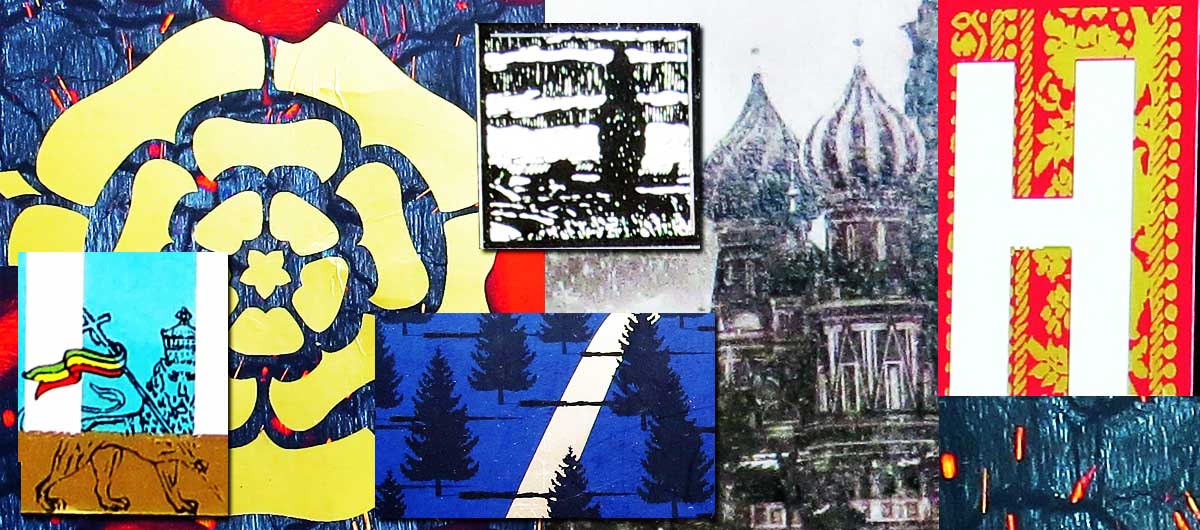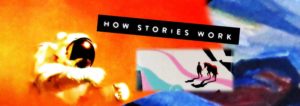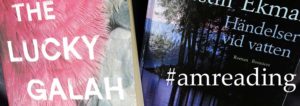The second quarter of 2020 I fell behind my target. Aiming to read fifty books in the year, between April and the end of June I ought to have managed to complete twelve or thirteen. Unfortunately I only managed eight. True, some of the eight were quite long, but my resolution does not allow for book length. It should. Fat books take longer to read.
Twenty years on
In my last reading diary entry I mentioned Pat Barker’s The Silence of the Girls. That was the first book I completed in April, though I’d been reading it in March. March was rather a good reading month, what with self-isolation in fear of Covid and the large pile of books I brought back from England.
The first book I picked up after finishing Pat Barker’s riff on the Trojan wars was Zadie Smith’s White Teeth.
Desert marker
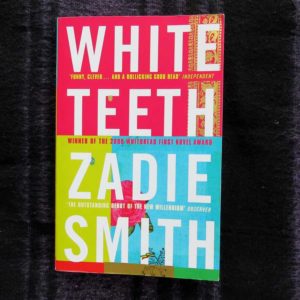
It is twenty years since the publication of White Teeth. I remember the hype surrounding it – and surrounding Zadie Smith. The number of people who recommended it to me. Unfortunately, at the time, I was struggling with depression. One consequence was an increasing inability to concentrate. Especially to concentrate on works of fiction. For me, White Teeth stands as a marker. It was the first book I consciously decided I could not read and it marks the beginning of my wanderings through a literary wasteland. For years after this, the pleasure that reading had always held for me evaporated, like water spilled in the desert.
Ever since I started to get back into the swing of reading again, I’ve had it in my mind to go back to White Teeth. Bizarrely, though, I was unable to find a copy in Sweden. I couldn’t get it new anywhere. Swedish bookshops don’t feel any commercial pressure to keep foreign language books available once they’re no longer newly published. I don’t blame them for that. But I found it surprisingly difficult to track White Teeth down even as a library copy. Swedish translations abound, but it seems the Swedish library system no longer has any copies of White Teeth in the original English. At least, I wasn’t able to find any. Maybe I didn’t try hard enough. Maybe I should have bought a copy on line.
Probably I’d have got around to doing that in the end. But while I was in England in March, involuntarily confined to Gatwick airport, I spent time in the bookshop. And there, finally, I was able to buy a copy.
Fat books: White Teeth
White Teeth is a fat book. One of the fat books which made it difficult for me to hit my twelve book target for this quarter. Still, I’m very pleased to have been able to read it at long last.
I enjoyed it, though I found it a bit sprawling. Despite the farcical nature of the various extremist groups that come together in the final section of the book, I actually wondered whether the book would turn out to be a tragedy rather than a comedy. Post-7/11 – and all that has come since – I was having difficulty accepting Muslim fundamentalists as figures of fun. I felt uncomfortable with it in a similar way to how I felt watching the film Four Lions. But while Four Lions deliberately played with viewers’ expectations – after all it was released in 2010 – White Teeth predated the 7/11 attacks. It was written in a more innocent age.
Perhaps not so much more innocent, when I think about it. The clash between societal racism and multicultural and multigenerational integration in London lies at the heart of the book. It also forms the background against which the story plays out. And the structure of Islamic fundamentalism at work in London, the grooming and recruitment of the young and ignorant, is also accurately described.
But it’s still funny. Painfully so at times.
Fat books: Wolf Hall
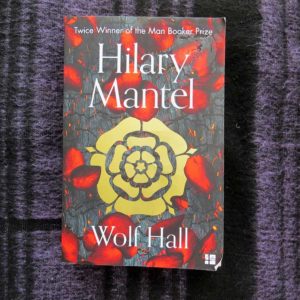
If White Teeth was my first fat book of the quarter. My second fat book, finished just a day or two before the end of June, was Wolf Hall by Hilary Mantel.
Despite having got back into the rhythm of reading and the pleasure of reading, I have postponed picking up historical novels for years. I had the feeling that I wanted to write my own historical novel, Elin’s Story, without being influenced and inadvertently plagiarising other writers. That might have been a reasonable perspective if I’d managed to write the novel in a year or two. But as it’s now 11 years and counting since I started Elin’s Story, it has felt increasingly perverse.
As with White Teeth, friends have told me I should read Wolf Hall. And as Hilary Mantel’s success has rolled on, many have assumed I have read it and been baffled by my ignorance. So again I picked up a copy at Gatwick airport, stored it in the pile of “books to read” on my shelf, and worked my way down to it during the summer.
Fantastic
What a fantastic novel. What an utterly believable world. And what a rounded sympathetic character Mantel’s Thomas Cromwell is!
Like most Brits, I suppose, history was taught to me from a certain perspective. Thomas Cromwell does not come well out of traditional history teaching. Whether you are on his side in terms of the religious strife in England during the Tudor period, or whether you are on the side of Thomas More, it doesn’t really matter. More has always been the more attractive character. Cromwell is the moneygrubbing bureaucrat.
It’s hugely refreshing to read Hilary Mantel’s interpretation of the man. Also to get a really good, negative picture of Thomas More. What a nasty piece of work! I had never thought of More as a misogynist and an intellectual snob, but everything that Hilary Mantel presents about him from Cromwell’s perspective fits so perfectly into this interpretation. I am astounded I never noticed it before.
The second and third volumes of Mantel’s story are on order.
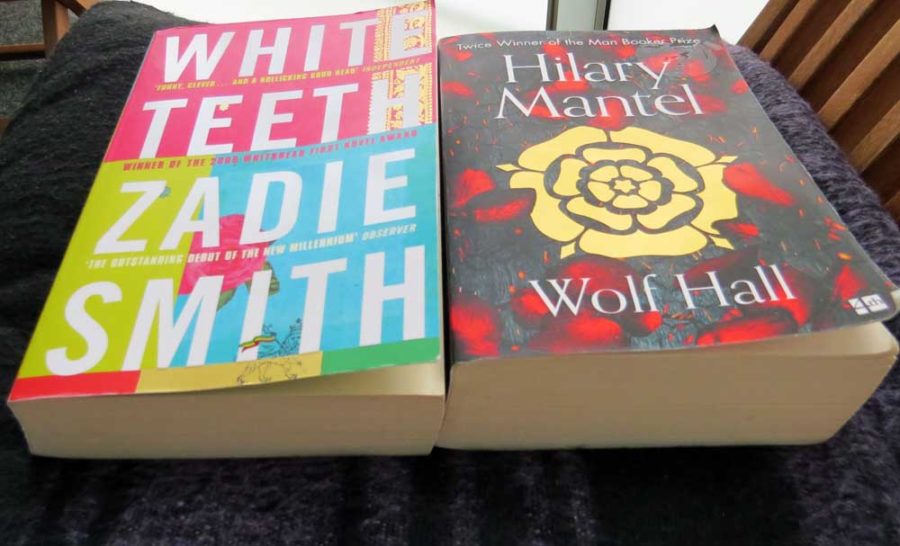
The thin books of the quarter
So that’s the two fat books I completed this second quarter. What of the thin ones?
I mentioned Pat Barker’s The Silence of the Girls at the very beginning of this and at the end of my previous reading diary entry. Here are the others, in brief.
Between White Teeth and Wolf Hall
The Pendulum by Julie Lindahl. A biography about the author’s search for her family’s roots and uncovering the truth of her grandparents’ Nazi past.

Pitch Dark by Renata Adler. A novel (possibly auto-biographical) about a woman on the verge of a nervous collapse. In the core of the book, she tries to find peace in Ireland, but instead ends up on a nightmare drive across the country to the airport. Parts of the novel are funny, especially the parts to do with her experiences in Ireland. The novel, though, is written in a style that is intended to reflect her state of mind and I found it a difficult read. It’s a thin book, but felt like a fat one for all that it only took me 8 days to read.
House of Lies by Ian Rankin. A solid detective story felt necessary at this point. Rankin’s detective Rebus is retired, but his former colleagues call on him to help when a cold case becomes hot. Very satisfactory.
Parallel with Wolf Hall
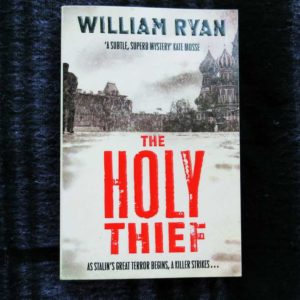
The Holy Thief by William Ryan. Another detective story, but this is set in Stalin’s Moscow in 1936. The first in a series following the investigations of Captain Korolev of the Moscow Militia. Bill Ryan was the tutor on the Novel Writing Essentials course I followed in May and June. (See Panic on the Writing Course, Writing Essentials and A Right and Proper Subject.) Another satisfactory read, though it suffered a bit from comparison with Rankin’s novel.
The Silver Road by Stina Jackson (translated by Susan Beard). This is a Scandi-noir story, a thriller set in the mosquito plagued forests and marshes of Swedish Norrland. A girl has gone missing and her father spends all his time searching for her. It’s not until a second girl vanishes and a third is threatened that the story is resolved. Normally I wouldn’t read a Swedish story in English translation, but I picked this up by accident. It’s a good tale. Gripping. I read it quickly.
Too Long Didn’t Read – all the URLs
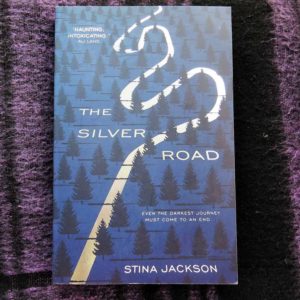
Author links go to the author’s home page or nearest equivalent where I can find one, books link to their entry on Wikipedia or GoodReads.
- Pitch Dark – Renata Adler
- The Silence of the Girls – Pat Barker
- The Silver Road – Stina Jackson
- The Pendulum – Julie Lindahl
- Wolf Hall – Hilary Mantel
- House of Lies – Ian Rankin
- The Holy Thief – William Ryan
- White Teeth – Zadie Smith

